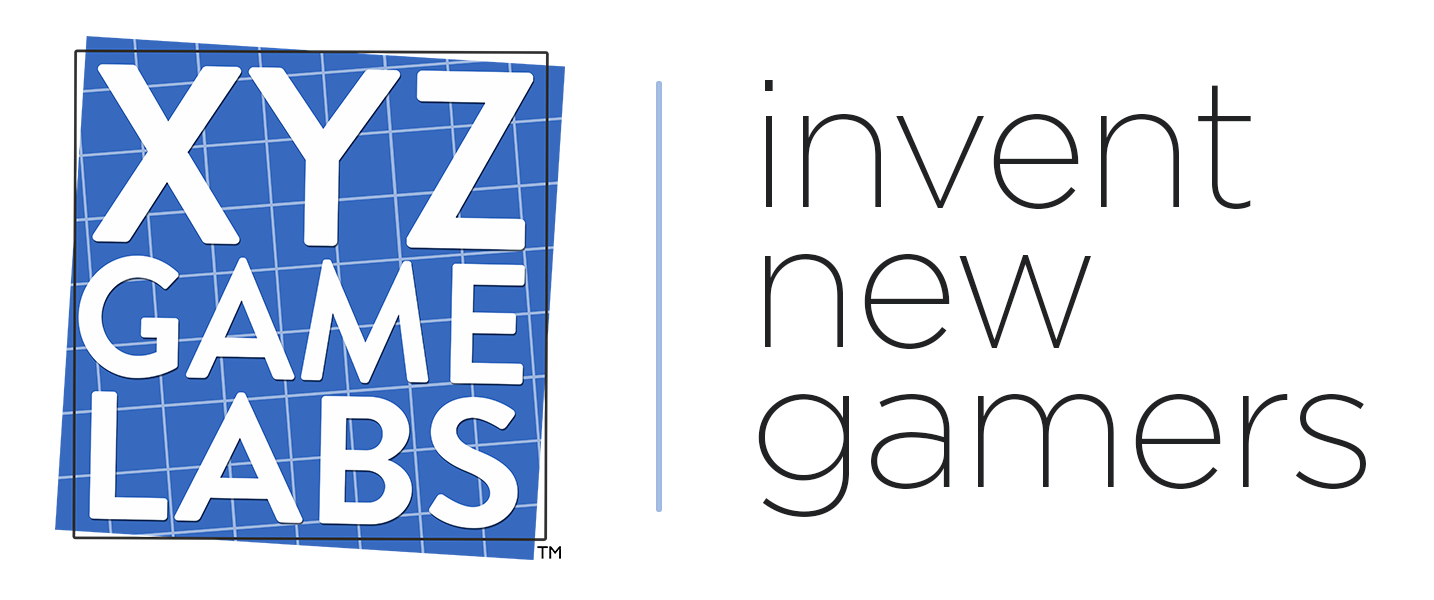I know we’re late, but here are some of the fun games we played at Protospiel Madison
1) Reject Squad: Super Hero Game
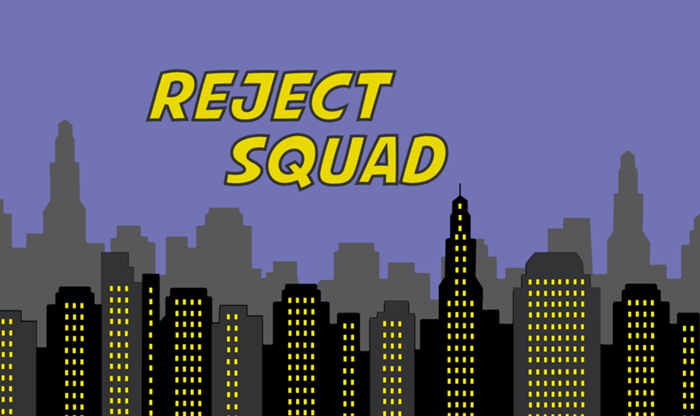
“Reject Squad: Super Hero Game” is a 3-5 player, 30 minute, story-telling party game. In this game, one of the players takes on the role of a talent scout who is looking for a team of heroes to solve a particular crisis. The talent scout uses a combination of crisis cards and twist cards to create a crisis. The talent scout presents the crisis to the rejects (the other players) who then have to create a super hero from cards in their hands (blue “superpower” cards and red “twist/odd weakness” cards), and then pitch why their super hero is best for the job. For example, a crisis can be “man-eating gorillas” that are “invisible”, and a reject superhero might have “Supersonic Flight” abilities “but only while your eyes are closed.” In the end, it’s up to the talent scout to choose who is best for the job.
The game was fun, creative, and silly but heavily dependent on the creativity and humor of the other players. We thought this would work well with groups of friends with similar sense of humor and especially well with creative people. Our main criticism is that games seemed to be hard to follow when all the players didn’t understand what they were trying to do. Had the designer not been there to thoroughly explain the spirit of the game we wouldn’t have been able to play. Our feedback to him was to make sure that he wrote a good rule book with an explanation of the “spirit” of the game and with a lot of clear examples of play.
2) The Caper Crew
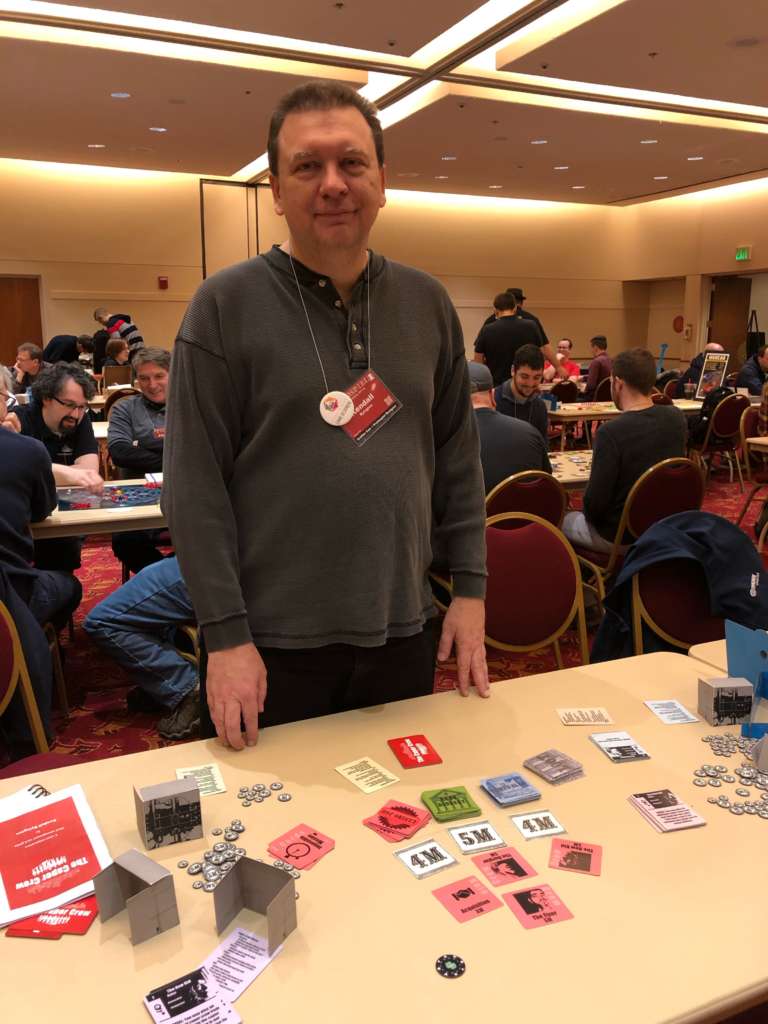
“The Caper Crew” is a 3-6 player, 60 minute, semi-cooperative hand management game. Each turn consists of heists at different levels of difficulty using a crew of thieves. Players need to work together to pull off the heist but are also competing to collect the most amount of loot. Each heist requires a variation of roles and attributes. Each role has a special action that they take before collecting loot.
We had a lot of fun playing. We loved the casino theme and the variety of different roles made the game more interesting. We thought the design needs to be clearer as to whether a heist requires a role versus an ability because some players were confused that the abilities weren’t roles/vice versa. We also had a hard time with the fact that you didn’t know how much loot other players were earning. In a game that allows you to mess with the other players, it’s helpful to know who is in the lead so the players know who they need to mess with. Overall it was a fun game with a fun theme, but the steps for each turn could have been clearer. It took a few rounds to get the hang of things and we would have been more strategic on the roles played had we known more clearly the implications of the role’s special abilities. Those things fixed, this is a solid game.
3) Ripon
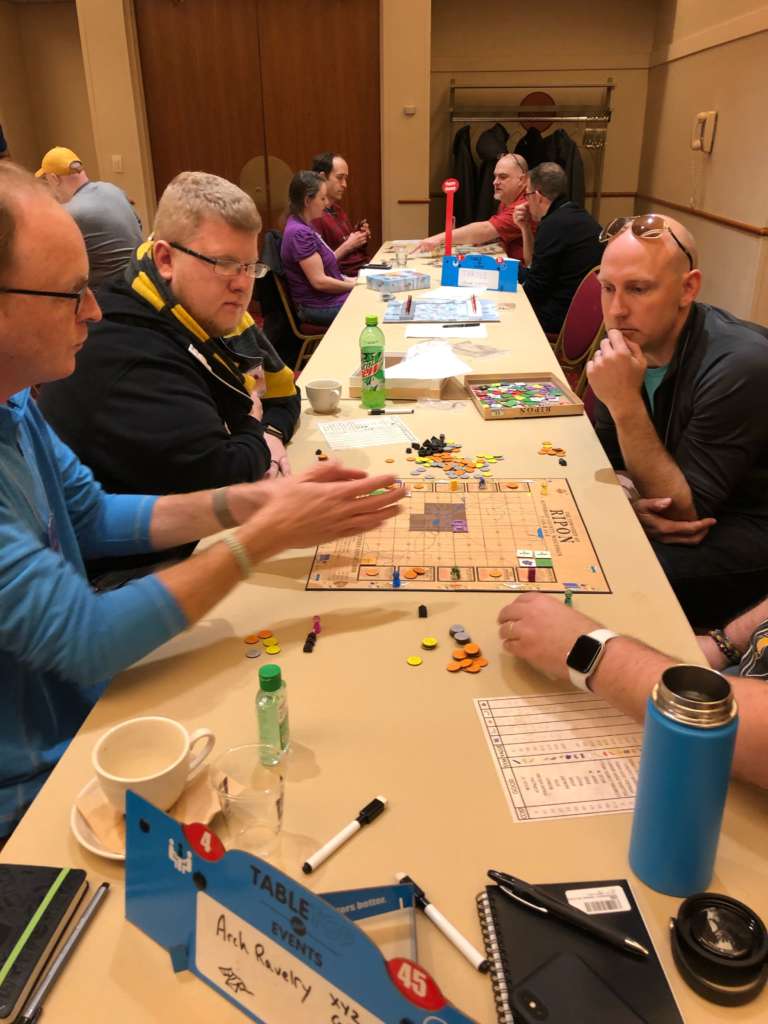
“Ripon” is a 2-4 player, 120 minute, resource management, town building game. The main thing that stood out was the unique farming mechanic. Rounds of the game were broken up into seasons: Spring, Summer, Fall and Winter. In essence, each round you could purchase crops from the market and plant them in your fields in one season and on future rounds in another season you could harvest and sell those crops. Some crops required you to wait longer before you could harvest them but sold for more, which we thought was cool and strategic. However, each season only allowed you to harvest or plant certain crops and if you managed your actions poorly, you would miss the window and not be able to harvest for quite some time. This proved to be quite punishing, valuable crops required a lot of time and resources to plant and when you miss, it may be many turns before you could harvest a gain which was a major feel-bad. Aside from farming, the players could also build buildings in town which granted special bonuses and victory points. We love games that have multiple paths to victory. You could spend your time harvesting the best crops or building in town. When a game allows the players to decide what kind of game they are going to play, it can really immerse them in the theme. Overall, the game was a blast to play even if it needed a bit of balancing.
4) Six Sided Heroes
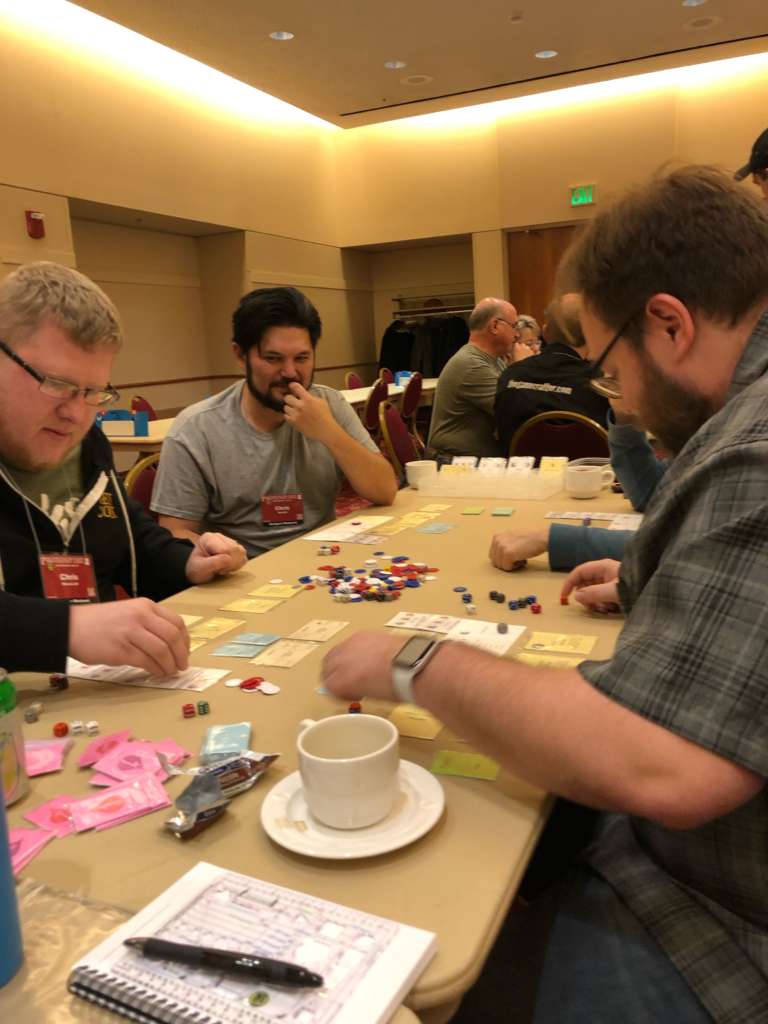
“Six Sided Heroes” is 3-6 player, 60 minute, competitive dungeon crawler, dice roller, with many characters, classes, monsters, tons of loot, and tons of fun. Each turn consists of: Spawning monsters, assigning them out, rolling your actions, and assigning damage. At the end of each round, the players level up and get loot. It was so fun to upgrade gear and to roll a fistful of D6s. Everybody is assigned monsters that are attacking them and one player heroically volunteers to take on the boss. It’s a bit of cooperative solitaire at first but there’s also bit of a teamwork aspect later on when assigning damage after rolling all of your actions. We weren’t sure of the solo play at first, but there’s a step later on that requires player interaction. The designer, Chris Masaki, explained that he tried to simulate real-time combat in a real dungeon fight where, as you can imagine, there would be overwhelming, somewhat chaotic, individualized fighting followed by post combat regrouping. The game was loads of fun, in fact the only negative feedback we had was that the game needed some balancing. Some characters were too powerful and made the game too easy to win. For example, the Wizard, after a few minor upgrades, was able to just blast everyone. With a little more balancing, this will be a great game.
5) Casino Job
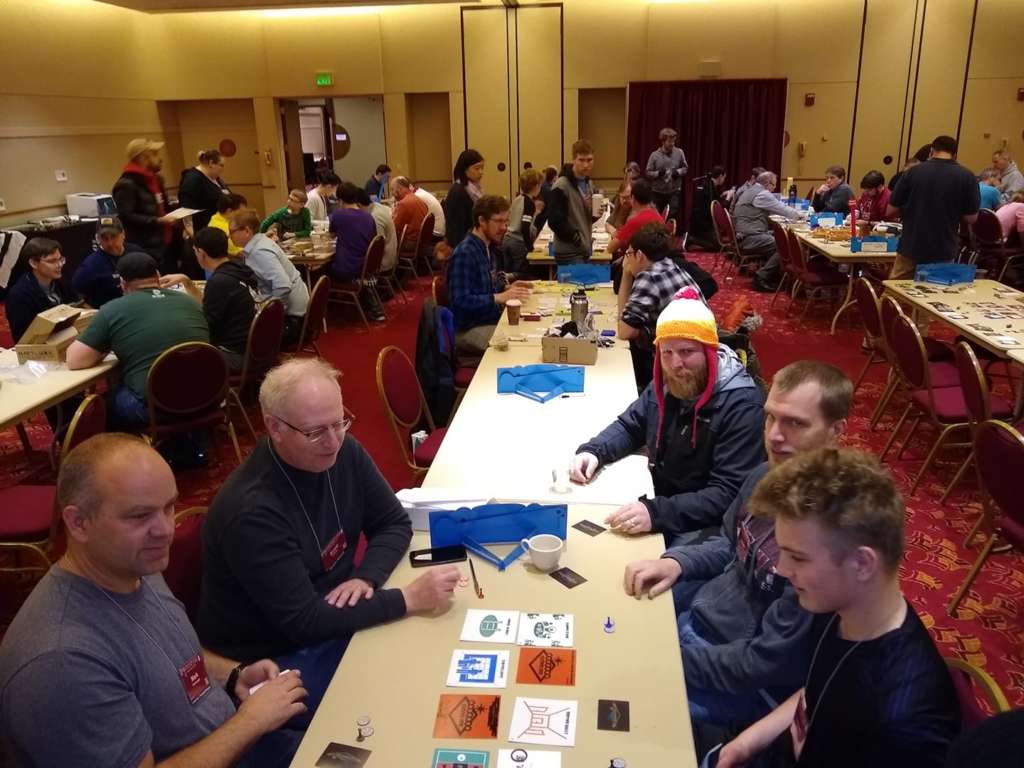
“Casino Job” is a 5-10 player, 30 minute social deduction/hidden role strategy game. Each player was either a member of a crack team of thieves or the ever vigilant casino security. Hidden roll is always a good time, and this was the case with Casino Job. The problem was that it felt like early on in the game we discovered what team everyone was on. We thought that if the game had gone on longer with the teams unknown, it would have been more exciting and strategic. This aspect is the greatest challenge that the designer of a hidden roll game has. The challenge is figuring out when the players should “solve” the riddle, and what kind of advantage does a player gain by solving this riddle before the other players have. This is the most work that has to go into these types of games so it’s no surprise that it was an issue for a prototype. It’s our opinion that the longer the game goes without players knowing the hidden rolls the more suspenseful it is. Those moments where you have to make a decision and you “just don’t know” what to do are golden. Our overall thoughts: It was a light casual game with solid mechanics and a theme that we thoroughly enjoyed.
